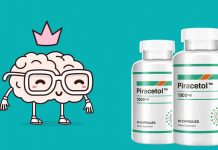
Stress infiltrates everyone’s life at some point. You encounter all kinds of stressful situations every day, when at work, at home, or on the road. Disciplining your kids stresses out most people, as does managing your finances, dealing with relationship troubles, and trying to get that difficult project finished at work when none of your coworkers seem to care.
A little bit of stress can be a beneficial thing, but the longer you stay stressed the more negative consequences it has for you and your health. Chronic stress leads to a multitude of health problems that could be easily prevented by lessening the stresses in your everyday life. Learn more about the benefits and consequences of stress below.
Stress: What is it?
Stress refers to the body’s innate reaction to the observation of pressure or an immediate change that requires adjustment and quick response. Many people refer to this automatic response system as the fight-or-flight response. It involves the large majority of your body’s internal systems and hormone signaling through a cascade of hormones like adrenaline and cortisol. The hormones quickly move through your body and prepare it to take immediate action.
In nature, the fight-or-flight response helps animals to solve serious short-term problems that are life threatening. The stress response forces them to get to a safer place when they perceive danger is heading in their direction or when smelling a predator in the area. These same instincts helped humans stay safe for thousands of years.

Now, humans do not encounter many dangers thanks to the help of large community groups and modern technology. That natural stress response did not magically disappear, however, and still kicks in during frustrating, but non-emergency situations like arguing with your partner or getting stuck in traffic on the way to work. Sometimes the stress can help you navigate the situation, but often it just adds to your frustration.
The Helpful Benefits of Stress
Scientists and researchers who investigate the effects of stress refer to the positive, or good kind of stress as eustress. Experiencing eustress for a small period of time can actually help in several different ways:
Increase Brain Power
When you experience low-levels of stress, your body increases the production of neurotrophins. Neurotrophins are a type of brain chemical that strengthens the connections between the neurons in your brain. Scientists believe this release of neurotrophins is the primary mechanism that causes a physical stressor like exercise to boost your concentration and productivity. Research conducted on rats in 2013 suggests that stress can also temporarily boost learning scores and memory retention.
Boost Immunity
During the stress response, the human body prepares itself for the possibility of infection or injury. When you feel mildly stressed, you body begins to produce extra chemicals that work to regulate your immune system called interleukins. The mild stress then boosts your immune response by causing a huge mobilization of the various immune cells in your bloodstream.
Motivates You to Be Successful
Eustress works as a great motivator for many people to accomplish the things they need to get done. You start thinking about the deadline for a project or your mother’s birthday looming ahead when you have not picked out a present yet and you start to feel stressed. That feeling of stress stimulates you to manage the situation quickly and effectively rather than letting it hang over your head.
Mild stress can also help you reach a state of heightened awareness, or flow, that keeps you completely absorbed in the activity. The desire to succeed coupled with stress as a motivator helps you find that special zone and makes you more productive.
Makes You More Resilient
Learning how to deal with stress quickly and in a healthy manner makes you more resilient in any difficult or stressful situation. It is not the stress itself providing the benefit, but the repeated experiencing and overcoming of the stress that gives you a better sense of control both physically and psychologically.

The Consequences of Prolonged Stress
Prolonged periods of stress offer no benefits whatsoever and end up negatively impacting your overall health. Some of the most common health risks caused by chronic stress are:
- Gastrointestinal problems including daily heartburn or acid reflux, which slowly erodes your esophagus, irritable colon, ulcerative colitis, and gastritis.
- Issues with hair and skin including permanent hair loss, adult acne, and eczema.
- Eating disorders like bulimia, anorexia, and binge-eating disorder, which leads to obesity.
- A severe loss of sex drive, premature ejaculation, impotence, and other sexual dysfunctions.
- Mental health issues including depression, anxiety, and host of other personality disorders.
- Cardiovascular and respiratory diseases like abnormal heart rhythms, heart attacks and high blood pressure.
- Strokes
Ultimately we can’t allow ourselves to experience severe stress regularly, but low to mild levels of stress can certainly benefit us in a number of situations.
Read our full review about one of the best nootropicsupplements: Mind Lab Pro



























